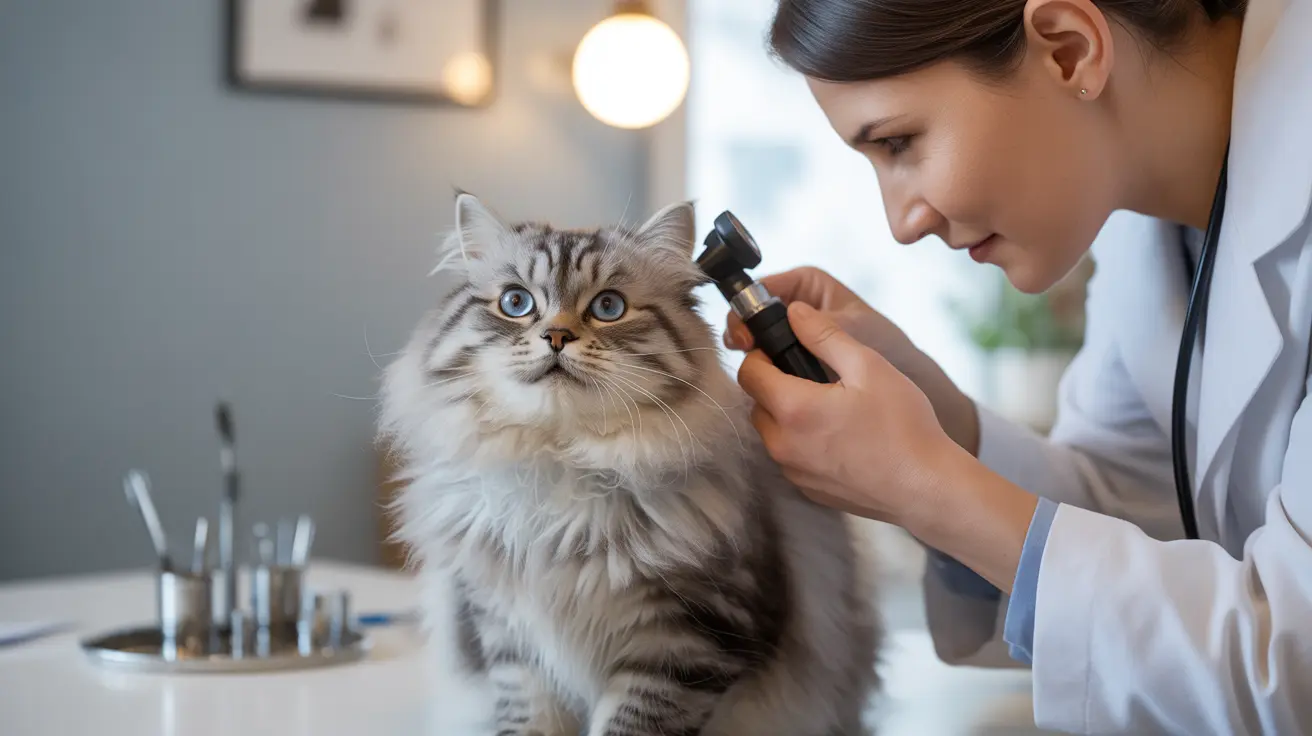Understanding Ear Mites and Their Impact
Ear mites (Otodectes cynotis) are microscopic parasites that live in cats' ear canals, feeding on ear wax and skin oils. These persistent pests cause intense irritation, leading to excessive scratching, head shaking, and potential complications if left untreated.
These highly contagious parasites spread easily between pets through direct contact, making them particularly problematic in multi-pet households and outdoor cats.
Why Alcohol Is Not a Safe Treatment Option
Despite what some online sources might suggest, using alcohol to treat ear mites can be extremely harmful to your cat. Rubbing alcohol:
- Causes severe burning and irritation in the ear canal
- Dries out sensitive ear tissue, leading to inflammation
- May damage the eardrum if present in sufficient quantities
- Can worsen existing inflammation and infection
- Doesn't effectively eliminate all mites or their eggs
Safe and Effective Treatment Methods
Instead of risking your cat's health with alcohol, consider these veterinarian-approved treatments:
Professional Veterinary Care
- Proper diagnosis through microscopic examination
- Prescription anti-parasitic medications
- Treatment of any secondary infections
- Regular monitoring of treatment progress
Topical Treatments
Veterinarians typically prescribe specialized ear drops containing ingredients like:
- Ivermectin
- Selamectin
- Milbemycin oxime
Systemic Treatments
Monthly preventative medications that treat multiple parasites, including ear mites, are often recommended for long-term protection.
Prevention and Home Care
To prevent ear mite infections and reinfestations:
- Regular veterinary check-ups
- Clean bedding and pet areas frequently
- Treat all household pets simultaneously
- Monitor new pets before introducing them to others
- Keep cats indoor when possible
Frequently Asked Questions
Does rubbing alcohol effectively kill ear mites in cats without harming their ears?
No, while alcohol might kill some mites on contact, it can severely irritate and damage your cat's ear tissue. Professional veterinary treatment is much safer and more effective.
What are the safest and most effective veterinary treatments for ear mites in cats?
The safest treatments include prescription anti-parasitic medications, either as ear drops or spot-on treatments, administered under veterinary supervision. These specifically target mites while being safe for your cat.
How can I tell if my cat has ear mites versus other ear infections?
Common signs of ear mites include dark, coffee-ground-like debris in the ears, excessive scratching, and head shaking. However, only a veterinarian can definitively diagnose ear mites through microscopic examination.
Why is using home remedies like vodka or vinegar not recommended for treating ear mites?
These substances can cause pain, inflammation, and tissue damage in your cat's ears. They're also ineffective at completely eliminating mite infestations and may delay proper treatment.
How can I prevent ear mites from spreading between my cat and other pets in the household?
Treat all pets simultaneously, even if they're not showing symptoms. Clean bedding regularly, keep living areas sanitized, and isolate new pets until they've been checked by a veterinarian.
Remember, when it comes to ear mites, professional veterinary care is always the safest and most effective solution. Never experiment with home remedies like alcohol that could harm your beloved pet.






